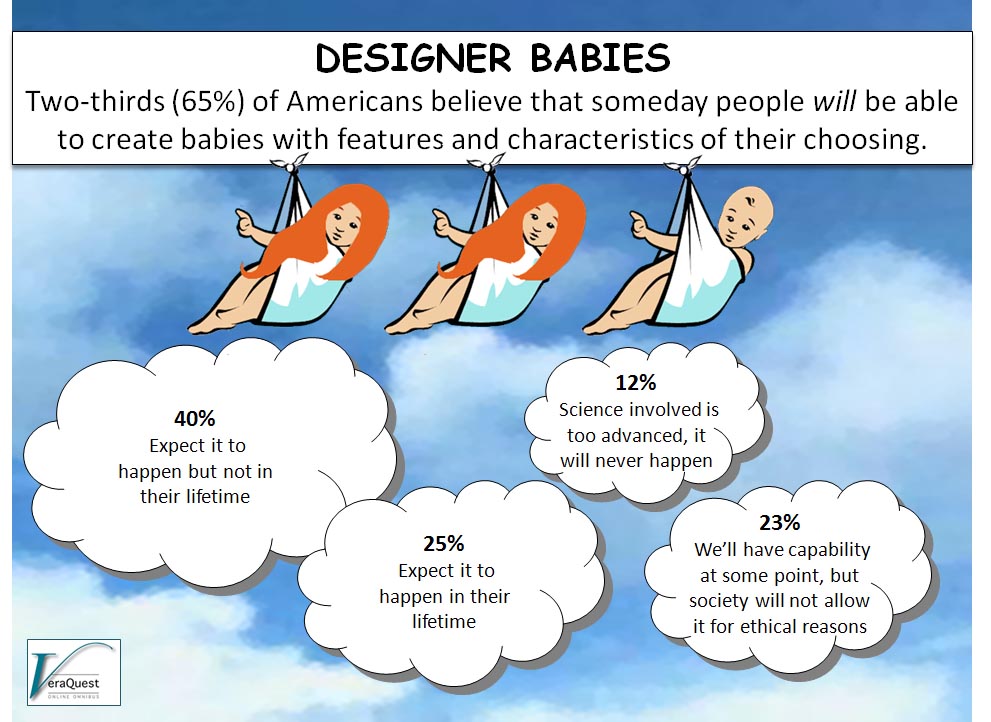Last week we talked about how the majority (57%) of Americans are in favor of human trials of an in vitro fertilization technique that combines DNA from three people in order to create embryos free of certain inherited diseases. And while I was in awe of the science behind it, I couldn’t help but wonder if “designer babies” are closer on the horizon than I had originally believed.
For me, personally, it’s a disturbing thought. Just imagine being given a menu. You’d prefer a male? Ok, would you prefer your son to have blond or brown hair? Tall and muscular? Funny? Smart? Athletic? Sure, no problem. It’s pretty creepy.
Yet about two-thirds (65%) of the 1,501 Americans polled in a recent VeraQuest survey believe that someday people will be able to create these “designer babies”. One-quarter (25%) actually feel it’s not too far away – they expect to see it within their lifetime. The remaining 40% believe this capability is inevitable, but they don’t believe it will happen while they are alive.
That brings us to the nearly one-quarter (23%) of Americans who feel that while the scientific capability to create “designer babies” will exist at some point, society will not allow it to happen for ethical reasons. (I wish I had that much faith in humanity. In my mind, once the capability comes to fruition, someone – whether in the U.S. or abroad – will try to exploit it.) Only 12% feel that the science involved with creating “designer babies” is too advanced and therefore it will never happen.

Regardless…Americans are clearly against the potential “designer babies” capability. Only 20% say that they are in favor of utilizing DNA manipulation technologies/techniques as part of an in vitro fertilization procedure to select cosmetic traits of children. The vast majority (80%) opposes utilizing this technology.
While all demographic groups oppose using the technology for cosmetic purposes, I do find it interesting that there is less opposition among young adults (18-39), males, and those with children in their household, compared to older adults (40+), females, and those without kids. I’m particularly intrigued that those with kids in their household favor this practice more than those without kids. One might think that parents have greater appreciation for their kids’ individuality. But perhaps in the age of bullying and other hardships kids face when they just want to fit in and be like everyone else…maybe it’s not so straight-forward.
If the technology existed, would you create a “designer baby”? What do you envision our world looking like, if this technology were available?
Leave a Reply